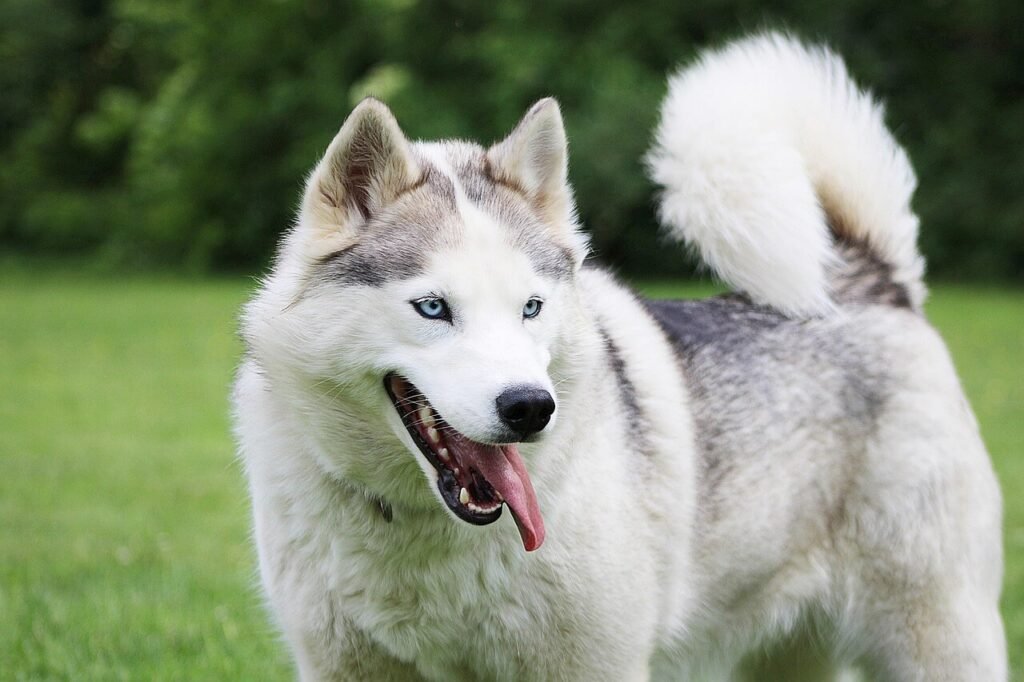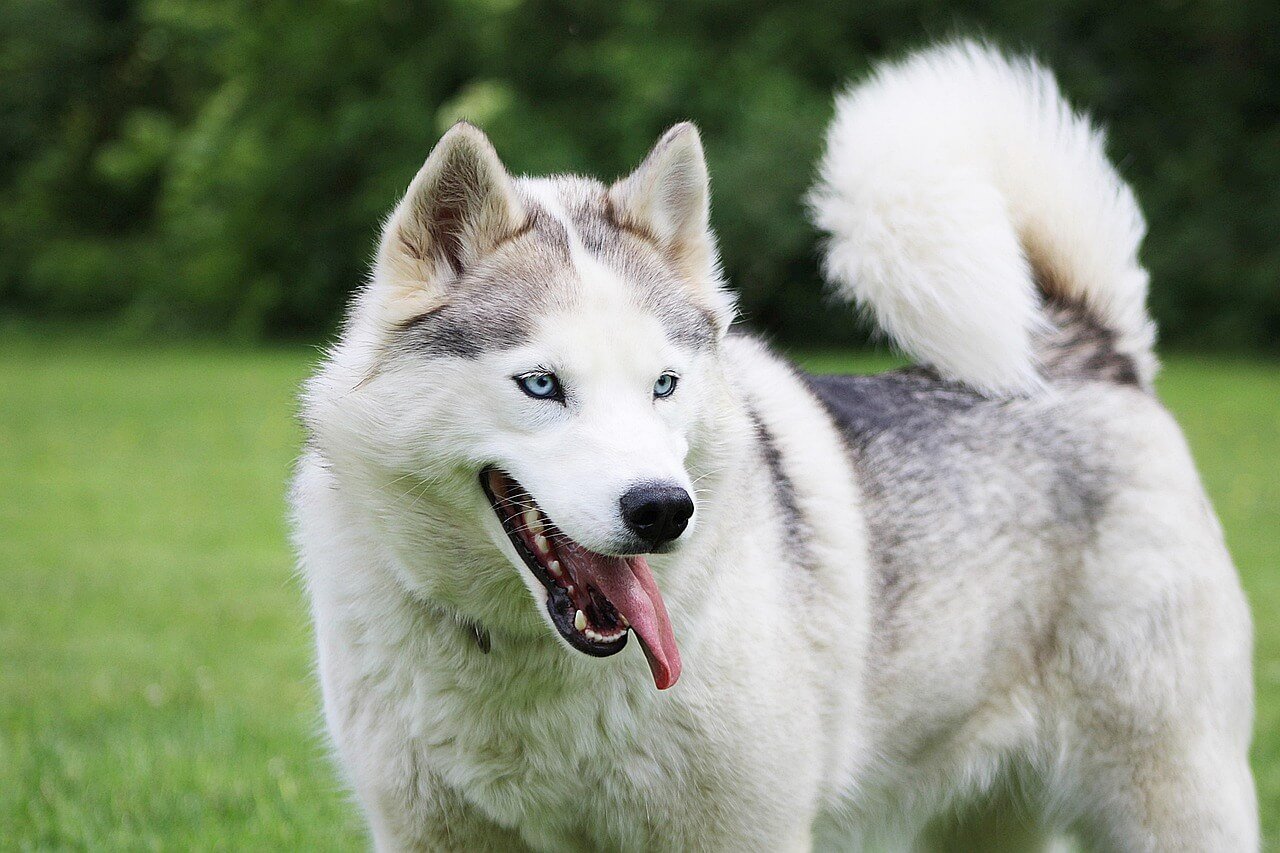Why Do Dogs Stare at You When They Poop? Unpacking This Curious Behavior
Have you ever noticed your dog staring at you while they’re doing their business? It’s a behavior that can leave many pet owners puzzled, amused, or even slightly uncomfortable. But rest assured, this quirky habit is far from random—it actually has deep roots in your dog’s instincts and psychology. Understanding why dogs stare at you when they poop not only satisfies your curiosity but also strengthens the bond between you and your furry friend.
In this blog post, we’ll explore the reasons behind this behavior, its evolutionary significance, and what it means for your relationship with your dog. By the end, you’ll see this seemingly strange act in a whole new light—and maybe even appreciate it a little more!
The Science Behind Why Dogs Stare at You When They Poop
Dogs are fascinating creatures with behaviors that often stem from their wild ancestry. When it comes to staring at you during their bathroom breaks, there are several scientific explanations rooted in instinct and social dynamics. Here are some key reasons why your dog might be locking eyes with you:
Vulnerability During Elimination : Dogs feel exposed and vulnerable while pooping, so they look to you for reassurance and protection.
Pack Mentality : As pack animals, dogs seek connection and approval from their “leader,” which is often you.
Bonding Behavior : Staring at you reinforces the emotional connection and trust they feel toward you.
Observing Your Reaction : Dogs are highly perceptive and may watch you to gauge whether their actions are acceptable.
Seeking Affirmation : Some dogs simply want to ensure you’re paying attention to them, even during private moments.
This behavior is a testament to the strong bond you share with your dog. By understanding their need for security and connection, you can better appreciate why they choose to stare at you during such a vulnerable moment.
How to Respond When Your Dog Stares at You While Pooping
While it’s natural for dogs to stare at you during elimination, your response can influence their comfort level and behavior. Here are some tips on how to handle these moments in a way that supports your dog:
Stay calm and avoid making a big deal out of the behavior
Offer gentle praise or reassurance if they seem anxious
Avoid direct eye contact, as it might make them feel uneasy
Respect their space by giving them some distance if needed
Reward them afterward to reinforce positive associations
By responding thoughtfully, you can help your dog feel safe and secure, turning this quirky behavior into a positive experience for both of you.
Check this guide 👉Understanding Dog Staring: Best 7 Expert Tips!
Check this guide 👉Why Does My Dog Stare at the Wall? Best 7 Expert Tips!
Check this guide 👉Should You Look a Dog in the Eyes? Best 7 Tips!

Reasons Dogs Stare at You | What You Can Do |
|---|---|
Feeling vulnerable | Provide reassurance |
Seeking protection | Stand nearby quietly |
Reinforcing the bond | Offer gentle praise |
Gauging your reaction | Remain neutral |
Wanting attention | Acknowledge briefly |
Other Fascinating Behaviors Related to Pooping
Staring isn’t the only curious behavior dogs exhibit during elimination. From sniffing to circling, their bathroom habits are influenced by a mix of biology and instinct. Here are some related behaviors and their meanings:
Sniffing the Ground : Dogs use their keen sense of smell to find the perfect spot based on scents left by other animals.
Circling Before Pooping : This behavior dates back to their wild ancestors, who would trample grass to create a comfortable area.
Kicking Dirt Afterward : Dogs kick dirt to mark their territory with scent glands in their paws.
Looking Away While Pooping : Some dogs prefer privacy and may avoid eye contact to focus on the task.
Pooping in Alignment with Earth’s Magnetic Field : Studies suggest dogs align their bodies north-south during elimination due to magnetic sensitivity.
These behaviors highlight the complexity of your dog’s instincts and their connection to the natural world. Observing them can deepen your appreciation for your pup’s unique personality.
Tips for Managing Your Dog’s Bathroom Habits
Helping your dog develop healthy bathroom habits requires patience and consistency. Whether you’re dealing with staring or other quirks, these tips can make the process smoother for everyone involved:
Establish a regular bathroom routine to reduce anxiety
Choose a designated spot for elimination to create familiarity
Use verbal cues like “go potty” to encourage focus
Clean up accidents promptly to prevent repeat incidents
Reward good behavior immediately with treats or praise
With a little effort and understanding, you can guide your dog toward good bathroom etiquette while respecting their natural instincts.
Signs Your Dog Feels Vulnerable While Pooping
While staring is a common sign of vulnerability, dogs may exhibit other subtle behaviors that indicate they feel exposed during elimination. Recognizing these signs can help you provide the support they need to feel safe. Here are some behaviors to watch for:
Freezing or hesitating before pooping : This suggests your dog is unsure about their surroundings.
Frequent looking around : They’re scanning for potential threats or reassurance from you.
Rushing through the process : A quick exit may mean they don’t feel secure in the area.
Avoiding eye contact : Some dogs prefer privacy and will look away to focus on the task.
Whining or vocalizing : This can signal discomfort or anxiety during elimination.
By paying attention to these cues, you can create a more comfortable environment for your dog. A little extra care goes a long way in helping them feel at ease.
How to Build Trust During Bathroom Breaks
Building trust with your dog during bathroom breaks can reduce their anxiety and strengthen your bond. These moments are opportunities to show your dog that they can rely on you for support. Here are some ways to foster trust during these vulnerable times:
Stay nearby but avoid hovering : Being present without intruding reassures them.
Use calming body language : Avoid sudden movements or loud noises that might startle them.
Speak softly : A gentle tone can help them feel more relaxed.
Respect their pace : Let them take their time without rushing them.
Reward calm behavior : Positive reinforcement encourages confidence in future outings.
By creating a supportive atmosphere, you’ll help your dog feel more secure and deepen your connection with them.
Fun Facts About Dogs and Their Bathroom Habits
Dogs’ bathroom habits are full of fascinating quirks that reveal their unique personalities and instincts. Learning about these behaviors can make observing your dog even more enjoyable. Here are some fun facts about dogs and their pooping routines:
Dogs prefer privacy sometimes : Many dogs seek out hidden or quiet spots to do their business.
They communicate through poop : Dogs use feces to leave scent messages for other animals.
Poop alignment isn’t random : Studies show dogs often align themselves north-south due to Earth’s magnetic field.
Sniffing is serious business : Dogs can learn a lot about other animals just by sniffing their poop.
Some dogs “fake poop” : Certain pups pretend to poop as a distraction tactic when feeling threatened.
These quirky facts highlight the complexity of your dog’s instincts and add a layer of charm to their everyday behaviors. Observing these habits can bring you closer to understanding your pup’s world.
FAQ
Is it normal for my dog to stare at me while pooping?
Yes, it’s completely normal and often stems from their need for security and connection.
Should I stop my dog from staring at me during elimination?
No, it’s best to let them express this natural behavior unless it causes discomfort.
Why does my dog seem anxious when they poop?
Pooping makes dogs feel vulnerable, so they may look to you for reassurance.
Does my dog’s breed affect this behavior?
While all dogs may exhibit this behavior, certain breeds with stronger pack instincts might do so more frequently.
How can I make my dog feel safer while pooping?
Stay nearby, remain calm, and offer gentle praise to reassure them.
Conclusion: Embracing Your Dog’s Quirky Habits
Understanding why dogs stare at you when they poop sheds light on their instincts, vulnerabilities, and deep bond with humans. Far from being a random or odd behavior, this act reflects the trust and connection they feel toward you. By embracing these quirks and responding with patience and care, you strengthen the special relationship you share with your furry companion. Remember, every behavior—no matter how puzzling—tells a story about your dog’s inner world. So the next time your pup locks eyes with you during a bathroom break, take it as a compliment—they’re showing you just how much they rely on and love you.
Do Cats Have Taste Buds? Best 7 Expert Tips! – Discover how cats experience flavors and why their taste is so unique.
Do Dogs Have Taste Buds? Best 7 Expert Tips! – Discover how dogs experience taste, their preferences, and what it means for their diet and health.
Can Cats Taste Sweet? Best 7 Expert Tips! – Discover why cats can’t taste sweetness, how it affects their diet, and tips to keep them healthy and happy.
Can Dogs Taste Sweet? Best 7 Expert Tips! – Discover how dogs perceive sweetness, which foods are safe, and tips to manage their sweet cravings responsibly.





